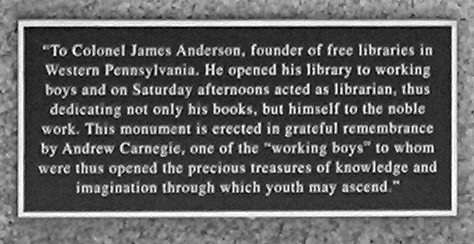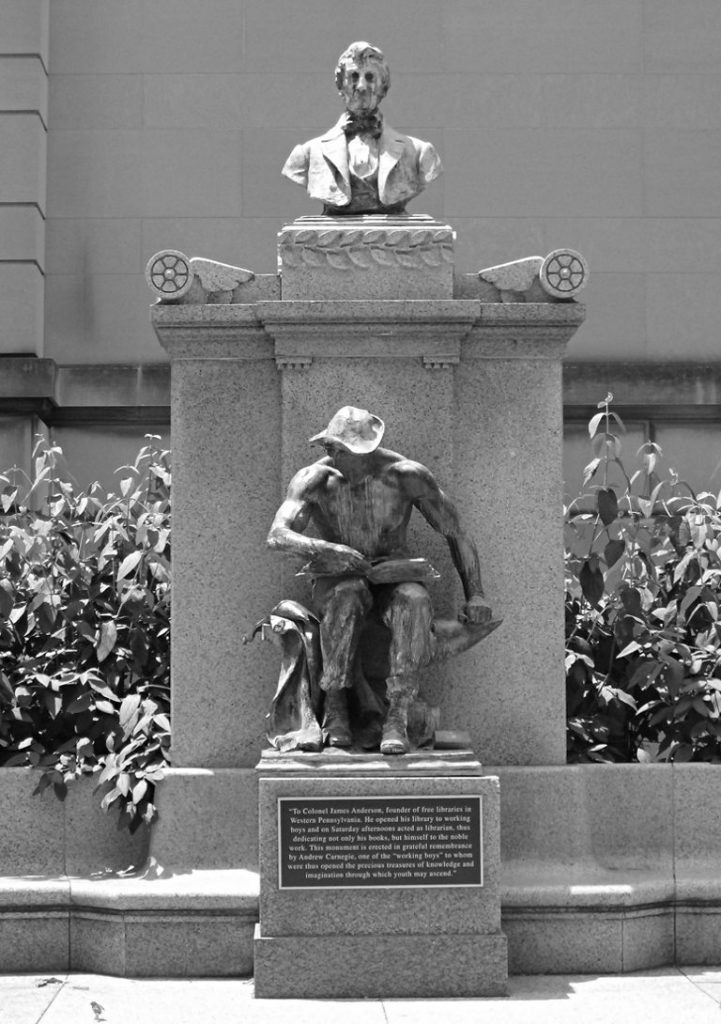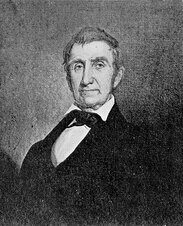In his Autobiography, Steel Magnate and Philanthropist Andrew Carnegie writes a glowing tribute about Colonel James Anderson, the man who opened his library to young boys in the community and in the process encouraged young Andrew to become a life long learner.
“As the twig is bent the tree’s inclined.” The treasures of the world which books contain were opened to me at the right moment. The fundamental advantage of a library is that it gives nothing for nothing. Youths must acquire knowledge themselves. There is no escape from this.
With all their pleasures the messenger boys were hard worked. Every other evening they were required to be on duty until the office closed, and on these nights it was seldom that I reached home before eleven o’clock. On the alternating nights we were relieved at six. This did not leave much time for self-improvement, nor did the wants of the family leave any money to spend on books. There came, however, like a blessing from above, a means by which the treasures of literature were unfolded to me.

Colonel James Anderson–I bless his name as I write–announced that he would open his library of four hundred volumes to boys, so that any young man could take out, each Saturday afternoon, a book which could be exchanged for another on the succeeding Saturday. My friend, Mr. Thomas N. Miller, reminded me recently that Colonel Anderson’s books were first opened to “working boys,” and the question arose whether messenger boys, clerks, and others, who did not work with their hands, were entitled to books. My first communication to the press was a note, written to the “Pittsburgh Dispatch,” urging that we should not be excluded; that although we did not now work with our hands, some of us had done so, and that we were really working boys. Dear Colonel Anderson promptly enlarged the classification. So my first appearance as a public writer was a success.
My dear friend, Tom Miller, one of the inner circle, lived near Colonel Anderson and introduced me to him, and in this way the windows were opened in the walls of my dungeon through which the light of knowledge streamed in. Every day’s toil and even the long hours of night service were lightened by the book which I carried about with me and read in the intervals that could be snatched from duty. And the future was made bright by the thought that when Saturday came a new volume could be obtained. In this way I became familiar with Macaulay’s essays and his history, and with Bancroft’s “History of the United States,” which I studied with more care than any other book I had then read. Lamb’s essays were my special delight, but I had at this time no knowledge of the great master of all, Shakespeare, beyond the selected pieces in the school books. My taste for him I acquired a little later at the old Pittsburgh Theater.
John Phipps, James R. Wilson, Thomas N. Miller, William Cowley–members of our circle–shared with me the invaluable privilege of the use of Colonel Anderson’s library. Books which it would have been impossible for me to obtain elsewhere were, by his wise generosity, placed within my reach; and to him I owe a taste for literature which I would not exchange for all the millions that were ever amassed by man. Life would be quite intolerable without it. Nothing contributed so much to keep my companions and myself clear of low fellowship and bad habits as the beneficence of the good Colonel. Later, when fortune smiled upon me, one of my first duties was the erection of a monument to my benefactor. It stands in front of the Hall and Library in Diamond Square, which I presented to Allegheny, and bears this inscription:
To Colonel James Anderson, Founder of Free Libraries in Western Pennsylvania. He opened his Library to working boys and upon Saturday afternoons acted as librarian, thus dedicating not only his books but himself to the noble work. This monument is erected in grateful remembrance by Andrew Carnegie, one of the “working boys” to whom were thus opened the precious treasures of knowledge and imagination through which youth may ascend.

This is but a slight tribute and gives only a faint idea of the depth of gratitude which I feel for what he did for me and my companions. It was from my own early experience that I decided there was no use to which money could be applied so productive of good to boys and girls who have good within them and ability and ambition to develop it, as the founding of a public library in a community which is willing to support it as a municipal institution. I am sure that the future of those libraries I have been privileged to found will prove the correctness of this opinion. For if one boy in each library district, by having access to one of these libraries, is half as much benefited as I was by having access to Colonel Anderson’s four hundred well-worn volumes, I shall consider they have not been established in vain.
Source: The Autobiography of Andrew Carnegie, 1920.
